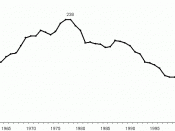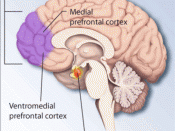In 1996, President Clinton signed the Personal Responsibility and Work Opportunity Reconciliation Act which was supposed to "change welfare as we know it by requiring work in exchange for time-limited assistance" (Pomeroy, 2008, p. 1). This grew into the Temporary Assistance for Need Families (TANF) program. The program was supposed to foster self-sufficiency through work (US Department of Health and Human Services, 2006, p. 1). The challenge with this premise was that it assumed that everyone would know how to work, want to work and be successful at work. Unfortunately, this is not what has happened. Although there are many success stories about this program, a large majority of people are still long-term welfare recipients. In fact, in my opinion, many are generationally dependant which means they have grown up in the welfare system, seen their parents in the welfare system and probably have many relatives doing the same.
It is unfortunate that this is happening in our country.
We are supposed to be helping people get off welfare and instead, we are encouraging this dependency. I think that the welfare to work program has done more harm to people on welfare and it has created an economic tragedy for our country.
Although wherever you look there are a variety of examples of how people were able to leave welfare by taking jobs, the challenge is that most have little opportunity other than menial jobs. These jobs may pay minimum wage, or they may pay a little more. According to an interview on NPR with author, Jason DeParle, the challenge with this was that people didn't get out of poverty. Instead, they moved up on the poverty line, which wasn't much better. In addition, they don't make enough money to really take care of themselves and their families. They have...


